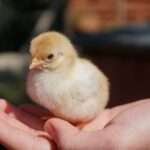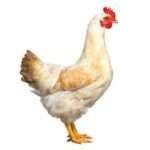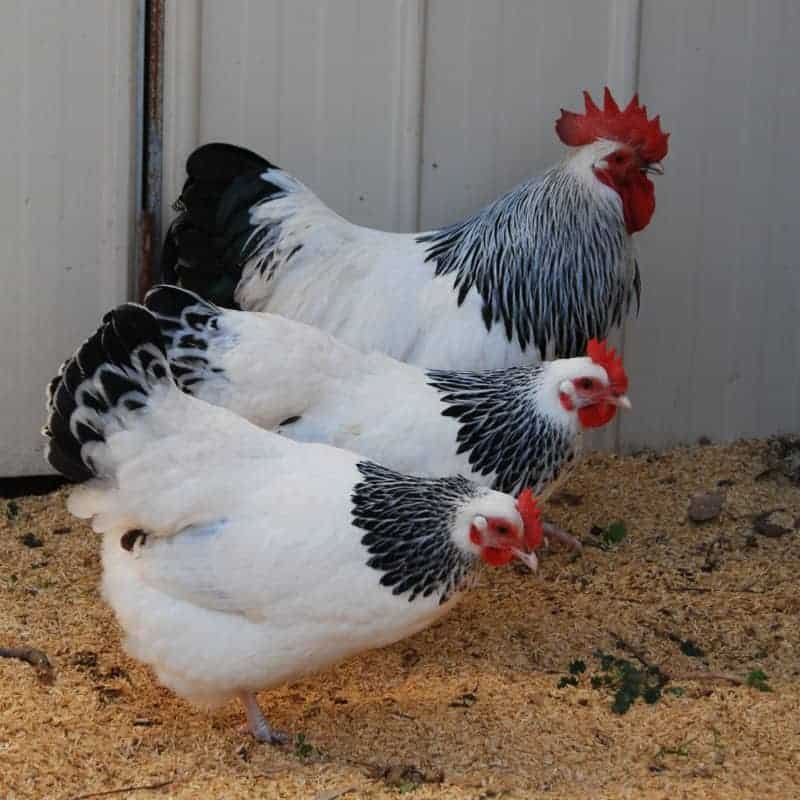
If you’re considering adding chickens to your backyard flock, Sussex chickens are an excellent choice, especially for beginners. Sussex chickens are a popular and versatile breed known for their calm temperament, dual-purpose capabilities, and adaptability to various living conditions. In this comprehensive guide, we will explore the characteristics, traits, and care requirements of Sussex chickens to help you make an informed decision about adding them to your flock.
The Sussex Chicken Breed:
The Sussex chicken breed is known for its medium to large size and sturdy build. They have a well-rounded body with broad breasts, making them an excellent choice for both meat and egg production. One of the fascinating aspects of Sussex chickens is their distinctive color patterns, which vary depending on the variety.
– Light Sussex: The Light Sussex variety features a striking contrast of pure white feathers with black neck hackles, tail feathers, and wingtips. They are known for their elegance and stunning appearance, making them a popular choice among chicken enthusiasts.
– Red Sussex: The Red Sussex variety exhibits a rich chestnut red color throughout their feathers, giving them a warm and inviting appearance. Red Sussex chickens are admired for their beauty and are equally valued for their egg-laying abilities.
– Speckled Sussex: The Speckled Sussex variety boasts a stunning pattern of dark brown or black specks on a warm, reddish-brown background. They have a rustic charm that is both eye-catching and unique.
Temperament and Behavior:
One of the standout characteristics of Sussex chickens is their docile and friendly nature. They are known for their gentle disposition, which makes them excellent choices for families with children and beginner chicken keepers. Sussex chickens are not easily spooked, and they often enjoy human interaction, making them a joy to have in the backyard.
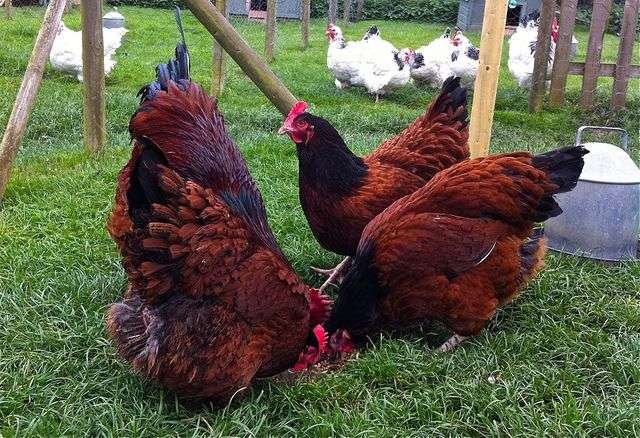
Dual-Purpose Qualities of Sussex Chickens:
Sussex are considered a dual-purpose breed, excelling in both egg production and meat quality. Their reliable egg-laying capabilities make them popular choices for those seeking a consistent supply of fresh eggs. Sussex hens typically produce an average of 250-300 eggs per year, making them valuable contributors to a sustainable backyard flock.
– Egg Color and Size: Sussex chickens lay large to extra-large brown eggs, known for their excellent taste and nutritional value. These eggs have sturdy shells and vibrant yolks, perfect for culinary delights.
– Meat Quality: When it comes to meat production, Sussex chickens have tender and flavorful meat, making them an excellent choice for those who wish to raise chickens for meat purposes as well.
Housing and Care Requirements:
When it comes to housing Sussex chickens, it’s essential to provide a safe and comfortable environment for them to thrive. A spacious and well-ventilated coop is essential to accommodate their size and prevent any overcrowding. Ensure that the coop is predator-proof, as Sussex chickens can be targets for predators due to their size and calm nature.
– Bedding: Provide clean and dry bedding in the coop, such as straw or wood shavings, to keep the chickens comfortable and maintain good hygiene.
– Nesting Boxes: Sussex hens appreciate a quiet and secluded space for laying eggs. Place nesting boxes in the coop, filled with soft materials, to encourage them to lay their eggs in the designated area.
– Roosting Bars: Sussex chickens prefer elevated roosting bars to sleep comfortably at night. Install sturdy roosts at an appropriate height for them to hop up easily.
– Outdoor Space: Sussex chickens enjoy foraging and exploring outdoors. Allocate a secure outdoor space, such as a run or a fenced yard, where they can scratch, peck, and dust-bathe.
– Diet and Feeding:**
To keep Sussex chickens healthy and thriving, it’s essential to provide a balanced and nutritious diet. A commercial layer feed is ideal for hens to support their egg-laying capabilities, while a higher protein content feed is suitable for growing chicks and roosters.
– Fresh Water: Access to fresh and clean water is crucial for all chickens, including Sussex. Ensure they have a constant supply of water available throughout the day.
Pairing Sussex Chickens with Other Breeds:
Sussex chickens’ gentle nature and easy-going temperament make them excellent candidates for integrating with other chicken breeds. When considering pairing Sussex chickens with other breeds, it’s essential to keep in mind their compatibility in terms of size, temperament, and activity level.
– Wyandottes: Sussex and Wyandotte chickens make great companions in the same flock. Both breeds are docile and friendly, making it easier for them to coexist harmoniously.
– Orpingtons: The calm and friendly nature of Orpingtons complements Sussex chickens well, and they often form a cohesive and peaceful flock.

Specific Care Considerations:
– Broodiness: Sussex hens are known for their occasional broodiness, during which they may sit on a clutch of eggs with the intention of hatching them. This behavior can disrupt their egg-laying routine, but it can also be an opportunity to raise new chicks.
– Winter Hardiness: Sussex are cold-hardy and can handle colder climates well. However, providing adequate protection from harsh weather conditions is still necessary to keep them comfortable and healthy during colder months.
– Interaction with Humans: Sussex chickens enjoy human company and can become quite tame with regular handling. Spend time with your chickens, gently interacting with them, and they will likely respond with affection and curiosity.
Breeding Sussex Chickens:
Breeding Sussex can be a rewarding experience, especially if you’re looking to expand your flock or maintain their heritage traits. If you haven’t bred chickens before, we have comprehensive overview on Breeding Chickens to understand what is involved. Here are some essential considerations when breeding Sussex chickens:
– Selecting Breeding Stock: When choosing breeding stock, look for healthy and robust individuals with desirable traits. Select hens that lay eggs consistently and exhibit good mothering instincts if you plan to hatch chicks naturally. For roosters, consider temperament, size, and confirmation.
– Natural Hatching: As mentioned earlier, Sussex hens can be broody, which means they may sit on a clutch of eggs and try to hatch them. If you intend to hatch chicks naturally, provide a quiet and secluded nesting area for the broody hen. Once hatched, the mother hen will care for and protect her chicks.
– Incubation: If you prefer to use an incubator for hatching eggs, collect fertile eggs from healthy and vigorous breeding stock. Maintain proper temperature and humidity levels in the incubator to increase the chances of successful hatching.
– Caring for Chicks: Newly hatched chicks are delicate and require special care. Keep them warm in a brooder with a heat lamp and provide them with a balanced chick starter feed. Make sure they have access to clean water at all times.
– Separating Roosters and Hens: As the chicks grow, you may need to separate the roosters from the hens to prevent overcrowding and potential aggression among males. Depending on the space available, consider creating a separate space for the young roosters until they mature.
– Health and Disease Prevention:
To maintain a healthy flock of Sussex chickens, regular health checks are essential. Keep an eye out for signs of illness, such as lethargy, loss of appetite, or abnormal behavior. Provide a clean and sanitary living environment to minimize the risk of diseases and parasites.
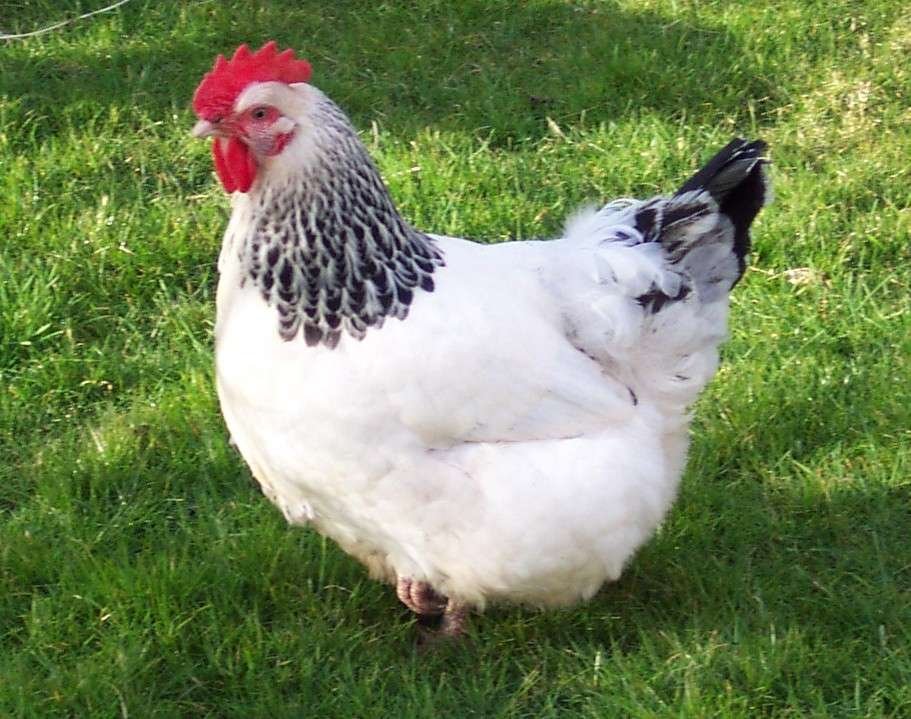
Additional Tips for Success:
– Record Keeping: Maintain detailed records of your breeding program, including the lineage, hatch rates, and any notable characteristics of the offspring. This information will help you make informed decisions in future breeding efforts.
– Rotate Breeding Stock: To avoid inbreeding, periodically introduce new bloodlines into your flock. This will promote genetic diversity and improve the overall health and vigor of your chickens.
– Seek Advice from Experienced Breeders: If you’re new to chicken breeding, don’t hesitate to seek guidance from experienced breeders or join local poultry clubs. Networking with other chicken enthusiasts can provide valuable insights and support.
To Sum it All Up
Sussex chickens are a versatile and delightful breed, making them an excellent choice for beginners and experienced chicken keepers alike. With their friendly temperament, dual-purpose capabilities, and beautiful appearance, Sussex chickens are a valuable addition to any backyard flock. Whether you’re seeking reliable egg layers, meat birds, or charming pets, the Sussex breed won’t disappoint. By providing proper housing, care, and nutrition, you can ensure that your Sussex chickens lead happy and healthy lives. With patience and dedication, breeding Sussex chickens can be a fulfilling venture, allowing you to preserve this beloved breed’s heritage traits. We hope this comprehensive guide has provided you with valuable insights into the world of Sussex chickens, inspiring you to embark on an exciting journey as a proud chicken keeper. Happy farming!

